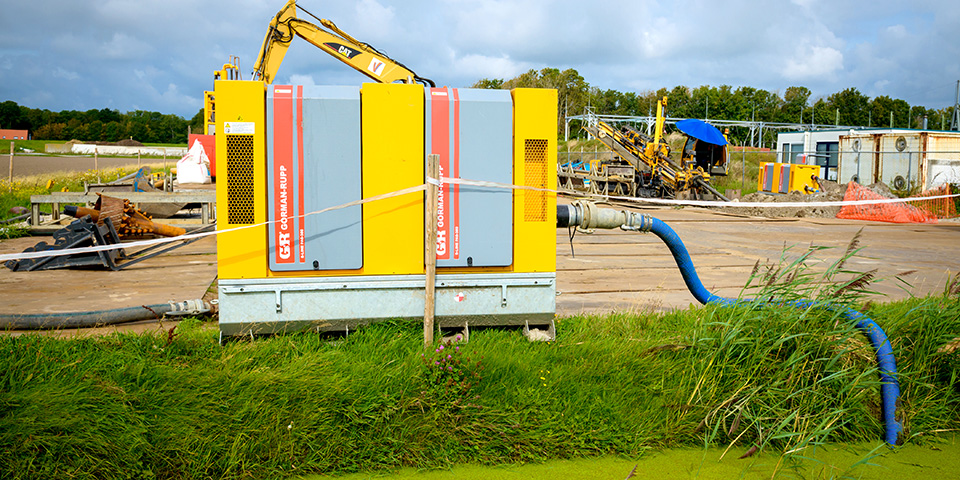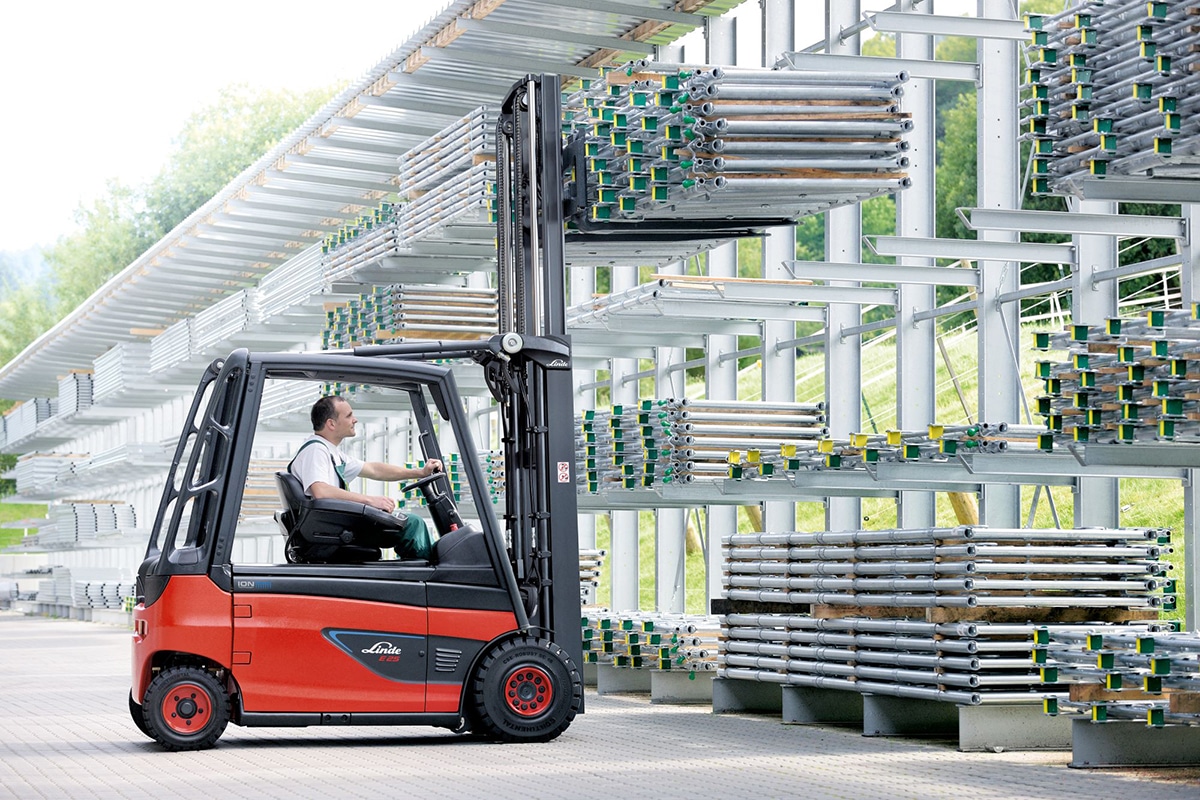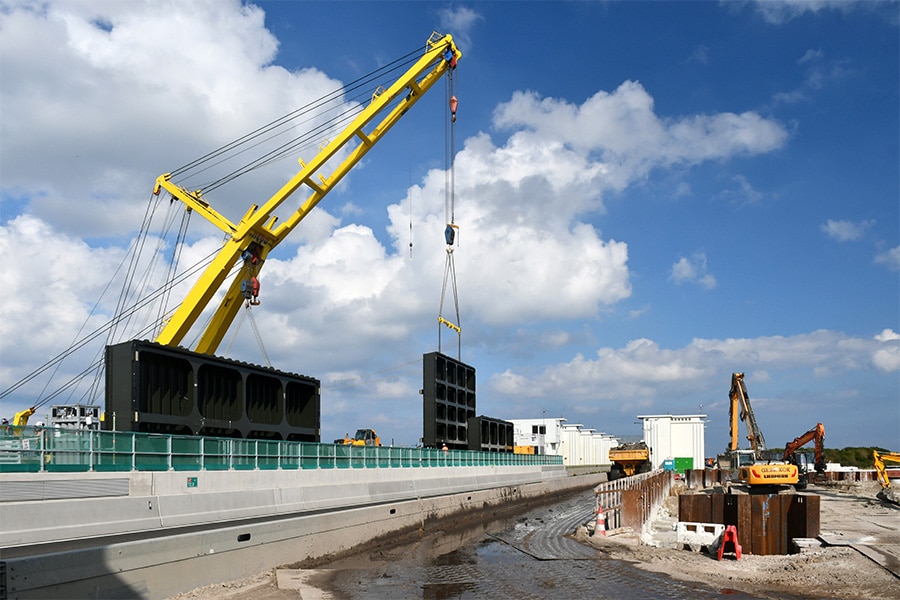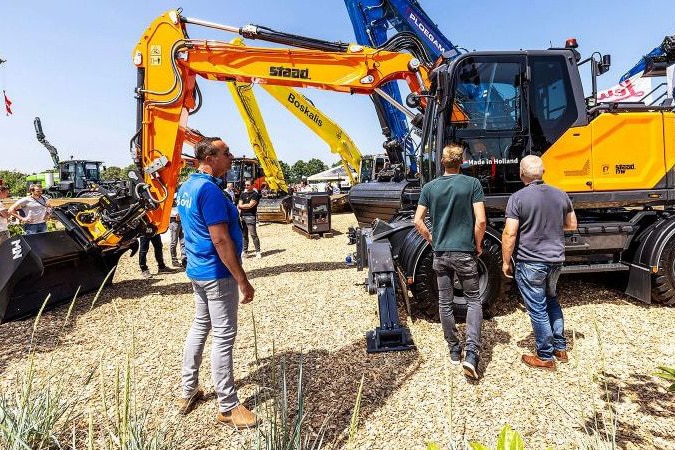
86 years of experience in pumps
Gorman-Rupp is the originator of the self-priming centrifugal pump. The first one was presented as early as 1933. Since then, the pump manufacturer has become the market leader in the United States with a range of many thousands of pump types. In Europe, too, the manufacturer is now well established, not least thanks to the S-Line pump sets, a series of mobile pump sets specifically developed and fully tailored to the needs of the European market.
"There is a suitable pump from Gorman-Rupp for every application," begins Jos Kelderman, Marketing Manager Europe. "We have become big with our self-priming centrifugal pumps but also produce other pump types, ranging from diesel or electrically driven pump sets and centrifugal pumps to submersible pumps, diaphragm pumps and gear pumps. Our self-priming centrifugal pumps are widely used in wastewater systems, but also to dewater a construction pit, for example. Unlike a conventional submersible pump, our pumps are always above ground level. This benefits the service life but also means that there is always direct access to the pump unit. Maintenance can therefore be carried out safely, simply and quickly."

Remote shed
Gorman-Rupp traces its origins to a remote shed. Kelderman: "The first pump was literally developed in a shed, during the crisis in the 1930s. Despite the enormous growth the family business has experienced - the company is now active worldwide on all continents - that convivial atmosphere of yesteryear is still present. Also with us in Europe. Our nickname is not for nothing 'The Pump People'. We pride ourselves on being a social company with a strong focus on innovation and technological improvements. We guarantee the quality of our pumps, which are generally oversized. This makes the pumps extremely reliable and suitable for any application. The branches in the Netherlands and Belgium are former distributors of Gorman-Rupp and now incorporated into the family concern. The Dutch branch is now the central branch for all European activities where, among other things, the engineering and assembly of diesel and electrically driven pump sets takes place. The Belgian branch specializes in the construction of above-ground (sewer) pump systems. In addition, both branches take care of the sales, service and rental activities for these countries. In the Netherlands we are moving to a new location in early 2020 with an even larger warehouse with a large stock of pumps and parts, modern workshops and a brand new training center."
Specific applications
In the Netherlands and Belgium, Gorman-Rupp is mainly active in the contracting, infra sector, industry and sewage and wastewater applications. "For the infra sector, we have a large range of pumps available, with the mobile pump sets also available on a rental basis if necessary," Kelderman explains. "Many infrastructure contractors use our rental division, so they are always assured of the right pump for the right application. This ranges from indeed draining or keeping a construction pit dry to very specific applications. A good example of the latter is pumping bentonite. We have developed and rent special pumps for that."

Through the online monitoring system PumpTr@xxTM, the user receives a notification by text message or e-mail if, for example, the fuel level falls below a certain level or if the pump unit is moved.
S-Line pump sets
The heart of Gorman-Rupp's pumps are produced in the United States. "Three years ago we started a development process to tailor the pumps more to the needs and wants of the European customer," Kelderman says. "The European contractor benefits more from compact(er) units. This is how the S-Line was created. The pumps in this series are powered by powerful, modern diesel engines, which meet the strictest EU Stage V emission standards, without the addition of AdBlue. The latter is for a reason. Pump units are generally put down and just have to do it. They are started up, and then nobody looks at them anymore. You can either find that annoying as a pump manufacturer or you take it as a starting point in your product development. The addition of AdBlue, for example, provides an extra operation that no one wants. Via the online monitoring system PumpTr@xxTM the user is notified by text message or e-mail if, for example, the fuel level drops below a certain level or if the pump unit is moved. After all, a mobile unit is often left running unattended and can be moved (or stolen) relatively easily."
Tuberproof
The development of the S-Line pump sets was initiated on the basis of practical experience, Kelderman summarizes. "The pump units therefore meet the specific requirements and situations in which they are used in practice. In other words, they are also designed to be hufterproof and have a smart design. This makes the pump sets easy to keep clean, safe to work with and also very nice to look at. All dry self-priming pumps feature an oil-lubricated shaft seal with a large oil volume. This ensures optimum cooling of the seal, making these pumps insensitive to prolonged and alternating "dry running. Finally, the combination of the modern, quiet and economical water-cooled diesel engines, the revolutionary noise-reducing wing doors and soundproof enclosure, ensures a pleasantly low noise level."
A common problem is larger waste particles found in the liquids being pumped, such as plastic packaging materials. This can cause pumps to become clogged. The patented Gorman-Rupp EradicatorTM system ensures that the solid particles are pulled apart and do not "tangle" with each other. This extremely reduces clogging. "This is another example of an innovation to ensure that our customers actually have to look after our pumps as little as possible, and can get on with their actual, primary business," says Kelderman.
With the current range, Gorman-Rupp has a future-proof assortment. "The drive is in fact secondary to the application. We can offer a suitable answer for every situation with our many thousands of pump types. From very small mobile pump sets (also compliant with EU Stage V emission standards) to very large units, infrastructure contractors are at the right place with us for all their pumping needs," Kelderman concludes.



